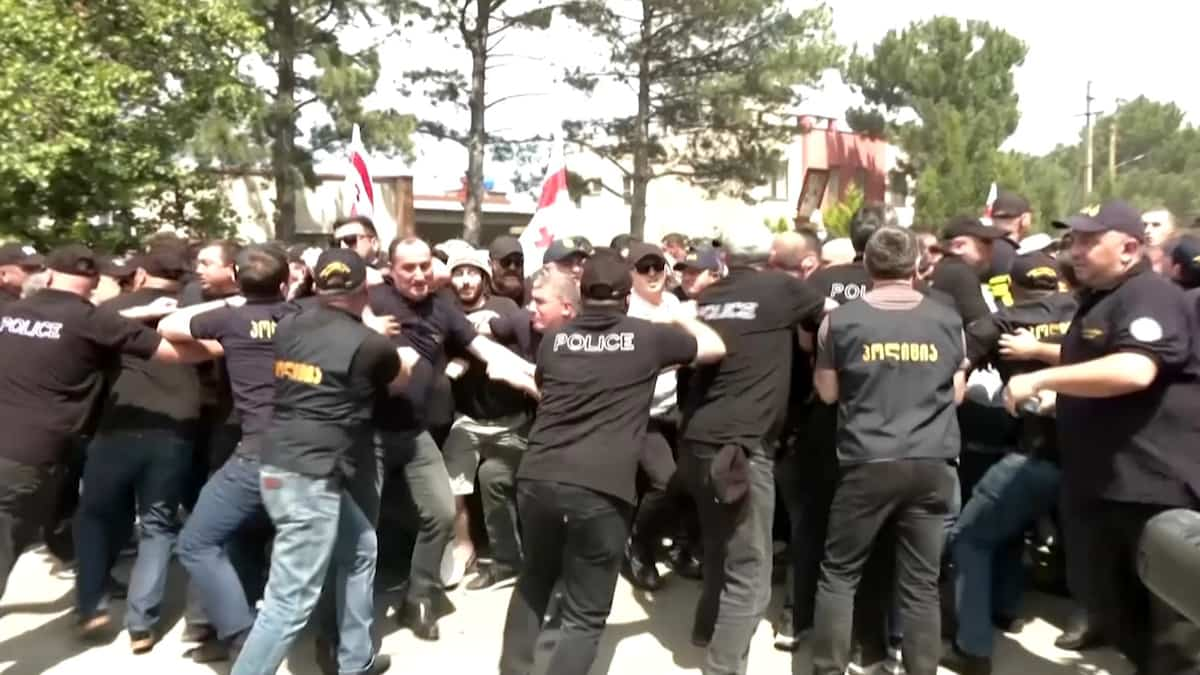
Organizers and Georgian authorities said a festival scheduled for Saturday in Tbilisi as part of LGBT Pride Week was canceled after several thousand right-wing protesters invaded the venue.
The outdoor event, which was scheduled to take place near the Georgian capital, was canceled after several far-right attackers destroyed the stage and burned LGBTQ flags, Pride Week organizer told reporters (Pride Week) from Tbilisi, Maryam Kvaratskhelia, noting that no The police stop them.
“The place was evacuated and no one was injured,” she added.
Organizers of Pride Week in Tbilisi have accused the government of collusion with violent anti-LGBT groups.
They claimed in a statement that the attack was carried out “in advance coordination and agreement with the Ministry of the Interior.”
However, the Interior Ministry confirmed that the far-right demonstrators “were able to bypass the police cordon and reach the scene of the event.”
“We managed to evacuate the organizers” of the Pride Festival in Tbilisi, Deputy Interior Minister Alexander Darakhvilidze said.
Interpress reported that a number of attackers had been arrested.
Georgian President Salome Zurabishvili, a pro-Western critic of the Tbilisi government, said the latter must ensure “the Pride Festival takes place safely”.
“Freedom of expression and assembly are fundamental rights and its violation is unacceptable,” she said.
Opposition voices accuse the government of tacitly supporting homophobic nationalist groups, which usually side with the ruling Georgian Dream party in elections, and of staging protests against pro-Western opposition parties.
In 2019, hundreds of far-right activists burned rainbow flags in Tbilisi, protesting the screening of an Oscar-nominated film about homosexuality.
In 2013, thousands of supporters of the ultra-Orthodox church disrupted a rally in Tbilisi to mark the International Day Against Homophobia.
The participants on this day were forced to ride the buses provided to them by the police to escape from the crowd that was chasing them, throwing stones at them, smashing windows, and threatening them with death.
The next day, thousands of Georgians signed an online petition calling for legal action against the attackers.
Georgia decriminalized homosexuality in 2000, and passed anti-discrimination laws in 2006 and 2014.
But homosexuality is heavily stigmatized in Georgia, where the influential Orthodox Church is leading an ideological battle with pro-Western political parties on social issues.






